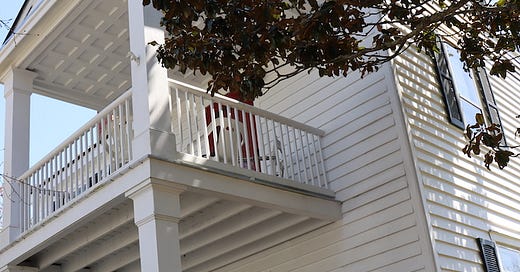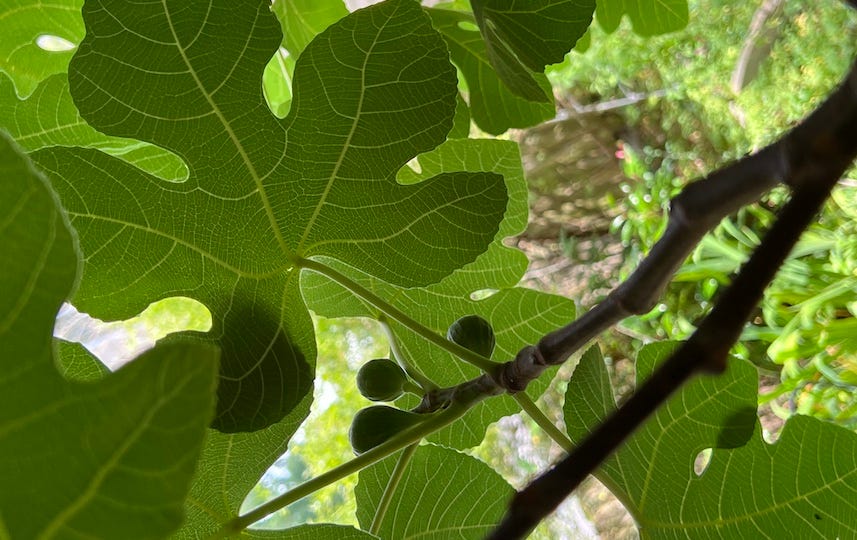In September of 1921, Paul Green went to the North Carolina coast to visit his fiancee Elizabeth Lay and her parents in Beaufort, NC, where Elizabeth’s father George Lay served as rector of the St. Paul’s Episcopal Church. Elizabeth had been graduated from UNC that year and was living with her parents. Green was working that summer in Lillington, with one more year of college to complete following his service in World War I. The couple was married in Beaufort the following summer, in July 1922. In this diary entry 45 years later, the Greens are heading for the coast for a visit. The playwright has business near Atlantic Beach. Citizens there are considering the idea of an outdoor drama to celebrate the story of Fort Macon. The project never materialized.
A month later in his 1966 diary, Paul Green documents several events—a trip to Rocky Mount for a theatre dedication, a visit to his doctor, and finally a conversation with his helper, a man named Arthur, whom he regularly consults for horticultural advice and assistance at the Green property called Windy Oaks. The dialogue is rendered with Green’s usual effort to capture the precise pronunciation of Arthur’s words.
September 17
Off to Beaufort and Morehead City to meet with group about rehabilitation of old Fort Macon and a possible dramatic presentation there. Toured Tryon Palace on way.
Put up at the Sea Hawk Motel. Then met Mrs. Hamilton and Mrs. Wallace at the Fort. Explored it, talked to the superintendent, walked around, picked out for myself alone a possible site for an amphitheatre and parking lot if ever a play was done.
For cocktails to George Wallace house on Bogue Street. Then to Harvey Hamilton’s for dinner. He had shot a lot of Turtle Doves which he fed us. Again I thought of the day I would turn vegetarian.
Sunday, September 18
Called on Anne and B.C. Brown. Then via St. Andrews Church in Morehead which E’s father, Dr. G.W. Lay, had organized. Also toured the old homes in Beaufort before we left. Went by the house where Dr. and Mrs. Lay lived and E. and I courted. Looked up at the attic window and thought of the two or three days I had spent up there writing on a story which I sold to The Atlantic Monthly, called as I remember, “The Devil’s Instrument.” Wonderful rain at night.
Sunday, October 16
To Rocky Mount in late afternoon to help dedicate the Tank Theatre. Made a lame talk, I thought. Then E. and I sat through Thornton Wilder’s Our Town. A good production by a dedicated group of amateurs. As often happens in a production like this, one finds an actor or two of stunning ability. Such was Mrs. Trotter in the part of Mrs. Gibbs.
Felt the strong influence of the Spoon River anthology in the last act as the dead spoke, also the return to earth bit of influence in Lilies. But what of it? So do we all draw help from others. But one thing bothered me, and this for the first time after seeing many productions of the play and reading it many times, namely the failure of the dramatist’s logic in the last act. This is not so difficult in lyric or narrative poetry, not difficult in dreams and visions. But when Wilder passes from life to after-death action by the same actors we’ve seen in life, and with feelings and thoughts alive, the thing doesn’t quite work.
Reception afterward. We got back to Windy Oaks about 1 A.M. Read the third act of Our Town at once to check. The flaw seemed still to be there.
Monday, October 17
In town on business. To doctor again. Blood pressure not right. Thought of the old saying—”A certain amount of noise goes with being a wagon.” This from Charlie Atwater of long ago, except he used the word “racket” instead of “noise.” Built a fire in the west upstairs fireplace. Went outside to see the smoke for the first time spinning joyfully upward toward the sky. Read late—Flora MacDonald material I had collected over the years, also some of James Boyd’s Drums. Jim a good clear writer.
Tuesday, October 18
Played hooky all day working joyously outdoors with Arthur, spading up garden plot, moving boxwoods, getting up a good supply of firewood, making holes and fertilizing the sick Maple tree in the backyard, using a pointed crowbar to jab the 7-inch-deep hole for the fertilizer. Arthur and I got in good talking now and then. I happened to mention that I was having a hard time getting our fig bushes to live—too cold at Windy Oaks.
“It ain’t the cold,” said Arthur who always has a curative word for my trouble.
“What is it then, Arthur?” I asked
“You don’t plant ‘em—set ‘em out right.”
“No?”'
“Nossuh. My daddy used to raise all kinds of fine figs. I got a good bush at my place in town. I got figs a-plenty from it.”
“Yes, but it’s warmer there than it is out here on this hill.”
“Oh, figs don’t mind the cold if you done ‘em right. Tell you what you do. Get you a lot of old iron pieces—old plough points, bars, nails, anything iron—and plant it around the roots. She’ll come then, yessuh.”
“I’ve never heard of that,” I said, “but maybe you’re right, Arthur.”
“Yessuh, no doubt about it,” he said, as we worked away.
In late afternoon a bit of rain fell, but only a bit.







